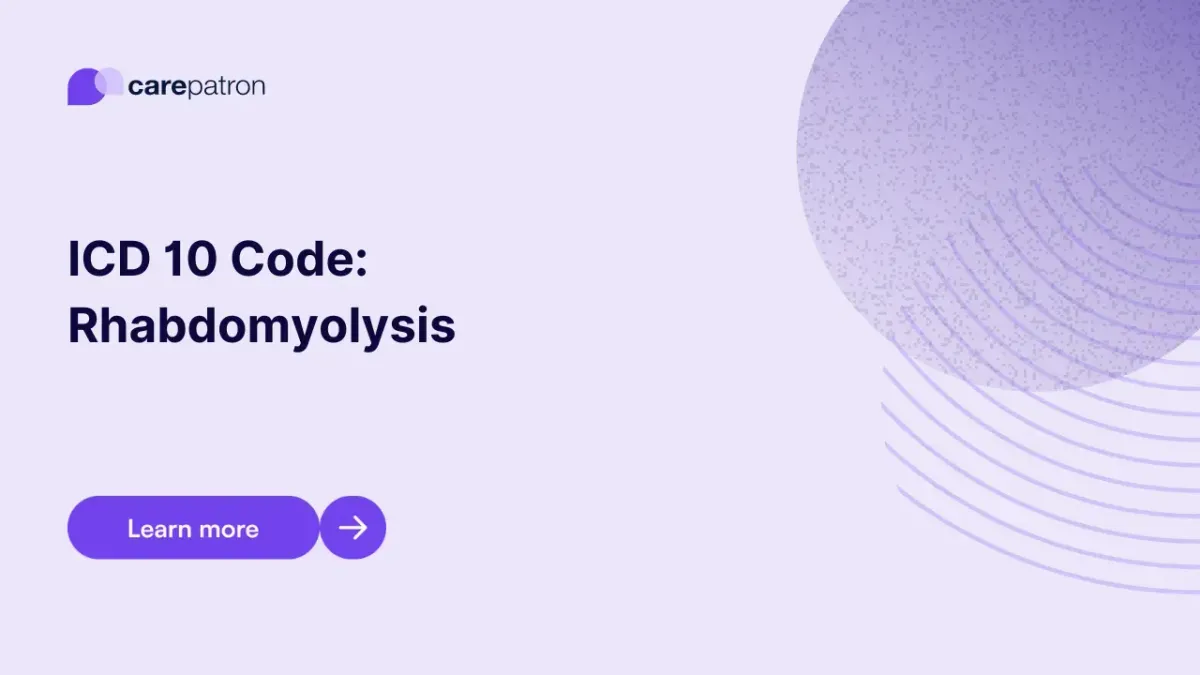
Rhabdomyolysis ICD-10-CM Codes
Explore the comprehensive guide on ICD-10 Codes used for rhabdomyolysis, aiding accurate diagnosis and treatment documentation for muscle breakdown conditions.
Use Code
Commonly asked questions
When a patient is diagnosed with Rhabdomyolysis or shows symptoms consistent with the condition.
Treatments include intravenous fluids, medications to balance electrolyte levels, and addressing the underlying cause.
It indicates that the patient has been diagnosed with rhabdomyolysis, a condition where muscle tissue breaks down and releases its contents into the bloodstream.
EHR and practice management software
Get started for free
*No credit card required
Free
$0/usd
Unlimited clients
Telehealth
1GB of storage
Client portal text
Automated billing and online payments
